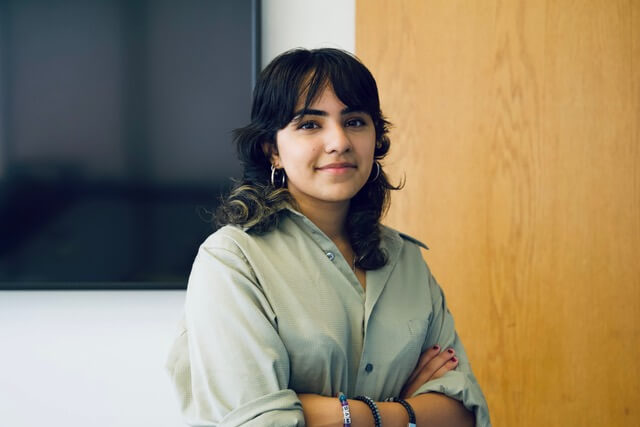Sam Salwan
Computer Science, Economics, and Data Science major
Political Science major
Mathematics minor

What’ve you enjoyed most about your area of study? Was there a particular discovery, new skill or way of thinking, or insight that you found especially valuable? Please share an example from your favorite class or experience.
What I’ve most enjoyed about studying Political Science and Economics at MIT has been the exceptional mentorship I’ve received as a budding researcher. The guidance I received while developing empirical research skills in 17.801 significantly shaped my approach to social science questions. This continued during my thesis work examining labor impacts of flexible contracts for women in conservative settings in India. My advisors helped refine my methodological approach and encouraged me to think more deeply about the intersection of economic incentives, gender norms, and policy design. This mentorship taught me how to ask better questions and design more rigorous research.
How does the knowledge from this field, or your interest in it, combine with your other major or minor studies at MIT?
My political science and economics education provides the crucial governance and institutional context that complements my technical coursework in computer science and mathematics. When analyzing development challenges, I’d hope to integrate computational methods from Course 6 to process complex datasets, economic theory from Course 14 to understand incentives, and mathematical modeling from Course 18 to identify patterns.
An MIT education includes study in the scientific, technical, social science, arts, and humanities fields. How do you think that wide range of knowledge and perspectives will be valuable to you – for your career success and for your enjoyment of life?
MIT’s breadth of education has given me both technical depth and human context that will be invaluable for my work in development economics. Technical courses equipped me with rigorous analytical tools, while humanities and social sciences taught me to ask ‘why’ and ‘for whom’ these tools should be deployed. I’ve learned to appreciate both the elegance of a mathematical proof and the nuance of political theory—complementary ways of making sense of our complex world that make life both professionally fulfilling and intellectually stimulating.
What are your plans for the future?
After graduating, I will be pursuing a post-graduate fellowship with Yale Economics’ Inclusion Economics Lab under Rohini Pande and conducting fieldwork in India. In addition, I will continue my part time research work with the World Bank. After this two-year period, I hope to pursue a PhD in economics, specializing in development economics.
